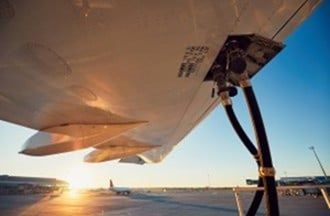IATA releases SAF accounting and reporting methodology

SOURCE: International Air Transport Association
February 5, 2025
BY International Air Transport Association
The International Air Transport Association released its methodology for accounting and reporting the emissions reduction associated with the use of sustainable aviation fuel (SAF) by airlines.
SAF is an essential component of airline plans to achieve net zero carbon emissions by 2050. The IATA methodology fulfils the critical need to ensure that SAF’s contribution to aviation’s decarbonization is accurately, consistently, and transparently accounted.
Advertisement
The publication of the IATA SAF accounting and reporting methodology is a critical step in the preparation of the IATA SAF Registry which is scheduled to launch in April 2025. The IATA SAF Registry is expected to play a key role in creating a functioning global SAF market.
“The IATA methodology will provide a consistent approach to accounting for the environmental benefits of SAF purchases, regardless of location. This is an essential component of the soon-to-be launched IATA SAF Registry which will enable airlines to claim SAF benefits against their regulatory and voluntary obligations, irrespective of where SAF was uplifted. The transparency of a published global standard methodology will give confidence that the Registry is robust and fair, with no double-counting. This is essential in creating a functioning global SAF market,” said Marie Owens Thomsen, IATA’s SVP Sustainability and Chief Economist.
Advertisement
Key Features:
- Purchase-based emissions calculations, irrespective of chain-of-custody used and SAF uplift locations, aligning with ICAO’s CORSIA approach.
- Optional tank-to-wake (TTW) or well-to-wake (WTW) emissions factors to meet varying regulatory and voluntary requirements.
- A consistent accounting approach to address regulatory and voluntary compliance needs.
- No pre-judgement of additionality[1] decisions by the claiming party, as long as no double counting occurs in the accounting of SAF emissions reduction.
- Guidance for SAF emissions reduction in per-passenger and per-shipment calculations.
- Core principles:
- A level playing field.
- Prevention of double-counting.
- Integrity in environmental and reporting claims.
- Transparent, verifiable data.
The IATA SAF accounting and reporting methodology was developed in collaboration with more than 40 airline experts worldwide. It is feedstock-agnostic and technology-neutral. Moreover, the methodology complements existing international frameworks and reinforces consistency without duplicating efforts.
More about the IATA SAF Accounting and Reporting Methodology (pdf)
Related Stories
The USDA’s Risk Management Agency is implementing multiple changes to the Camelina pilot insurance program for the 2026 and succeeding crop years. The changes will expand coverage options and provide greater flexibility for producers.
EcoCeres Inc. has signed a multi-year agreement to supply British Airways with sustainable aviation fuel (SAF). The fuel will be produced from 100% waste-based biomass feedstock, such as used cooking oil (UCO).
President Trump on July 4 signed the “One Big Beautiful Bill Act.” The legislation extends and updates the 45Z credit and revives a tax credit benefiting small biodiesel producers but repeals several other bioenergy-related tax incentives.
SAF Magazine and the Commercial Aviation Alternative Fuels Initiative announced the preliminary agenda for the North American SAF Conference and Expo, being held Sept. 22-24 at the Minneapolis Convention Center in Minneapolis, Minnesota.
Saipem has been awarded an EPC contract by Enilive for the expansion of the company’s biorefinery in Porto Marghera, near Venice. The project will boost total nameplate capacity and enable the production of SAF.
Upcoming Events










